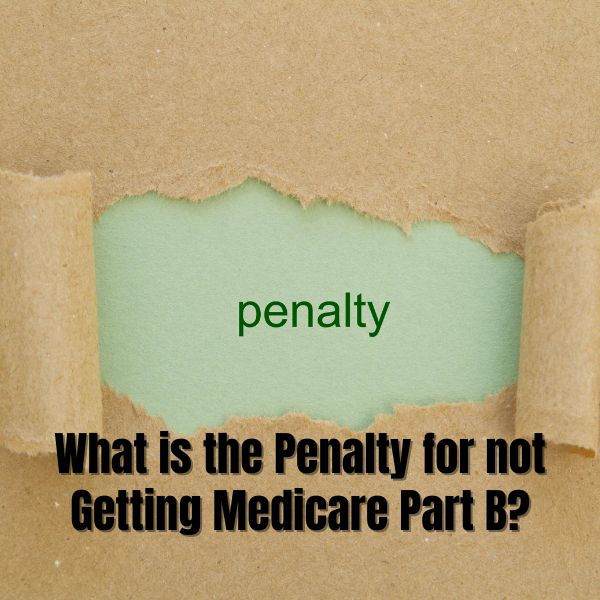
What is the Penalty for not Getting Medicare Part B: A Guide to Timely Enrollment and Cost Savings
May 9, 2024
Maximizing Medicare Coverage: Is There a Max Out-of-Pocket for Medicare
May 17, 2024This article provides an overview of Medicare enrollment at age 65, including automatic enrollment for those already receiving Social Security benefits and the need for active enrollment for others, as well as information on eligibility criteria, enrollment periods, coverage options, and special circumstances.
Introduction to Medicare Enrollment at 65
When approaching the age of 65, understanding Medicare enrollment is crucial. For many, Medicare eligibility at 65 is a milestone, offering a form of health insurance to support their medical needs in older age. Some individuals are automatically enrolled in Medicare when they turn 65, especially those already receiving Social Security benefits, ensuring a seamless transition into this new healthcare phase. However, not everyone is automatically enrolled; some must take active steps to sign up for Medicare to begin receiving its benefits.
Eligibility and Automatic Enrollment Criteria
Understanding Automatic Enrollment
Automatic enrollment in Medicare is a convenience offered to certain individuals. Those who have been receiving disability benefits from Social Security for 24 months, or individuals with Lou Gehrig’s Disease (ALS), are automatically enrolled in Medicare as soon as their disability benefits begin. Additionally, individuals receiving Social Security or Railroad Retirement Board benefits four months before turning 65 are also enrolled in Medicare automatically, making the process hassle-free for many.
Who Needs to Sign Up
Not everyone falls into the category for automatic enrollment. Individuals not receiving Social Security or Railroad Retirement Board benefits four months before their 65th birthday must proactively enroll in Medicare. This group includes those who are still working at 65 and have health coverage through their employer. In such cases, they can delay enrolling in Medicare Part B without facing a penalty, provided they have employer health coverage.
Enrollment Periods Explained in Detail
Initial Enrollment Period (IEP)
The Initial Enrollment Period is a seven-month window that begins three months before you turn 65 and ends three months after. This period is critical for ensuring timely enrollment in Medicare and avoiding gaps in healthcare coverage. If you miss this window, you could face late enrollment penalties, especially for Medicare Part B, which could increase your premiums.
Special and General Enrollment Periods Clarified
For those who miss the Initial Enrollment Period, there are Special Enrollment Periods (SEP) and a General Enrollment Period (GEP). SEPs allow individuals who have group health coverage based on current employment beyond the age of 65 to enroll in Medicare without facing penalties. The GEP occurs annually from January 1 to March 31, offering another chance for individuals who missed their IEP to enroll, with coverage starting on July 1.
Medicare Coverage Options and Plans
Original Medicare vs. Medicare Advantage Plans
Original Medicare, comprising Part A (Hospital Insurance) and Part B (Medical Insurance), provides essential coverage for healthcare needs. On the other hand, Medicare Advantage Plans, offered by private insurers, include Part A, Part B, and often Part D (Prescription Drug Coverage). These plans offer an alternative to Original Medicare, catering to diverse healthcare requirements and preferences. The choice between these options should be based on individual health needs, preferences, and budget considerations.
Supplemental Insurance and Prescription Drug Plans Overview
Medicare Supplement (Medigap) policies can help cover costs not included in Original Medicare, such as copayments, coinsurance, and deductibles, providing additional financial security. For those with Original Medicare looking for comprehensive medication coverage, standalone Medicare Prescription Drug Plans (Part D) are available, ensuring they receive the necessary medications.
Special Circumstances and Unique Situations Addressed
Working Past 65 and Enrollment Considerations
Individuals or their spouses who continue to work past 65 with employer health insurance can sign up for Medicare Part B without incurring penalties, as long as they maintain their group health coverage. This flexibility allows individuals to make the best decision for their circumstances without rushing into Medicare enrollment.
Disability and Specific Conditions Enrollment Guidelines
Medicare is not just for those 65 and older; individuals under 65 with disabilities are also eligible. Automatic enrollment is provided for those receiving Social Security Disability Insurance (SSDI) for 24 months. Specific criteria and timelines also apply for individuals with End-Stage Renal Disease (ESRD) or ALS, ensuring they receive the coverage they need.
We’re Here to Help
Navigating Medicare enrollment can be complex, but understanding the enrollment periods, coverage options, and eligibility criteria is essential. At Green Insurance Agency, we specialize in guiding individuals through the intricacies of Medicare enrollment, ensuring they find optimal coverage tailored to their needs. For personalized assistance or to explore further coverage options, contact Green Insurance Agency at (904) 717-1176. Our knowledgeable agents are dedicated to assisting you in navigating your Medicare journey, ensuring you make informed decisions about your healthcare coverage.
